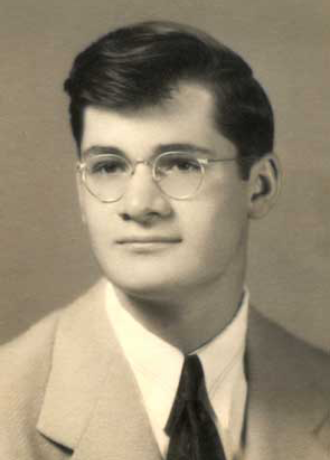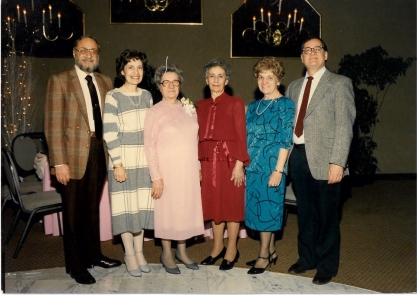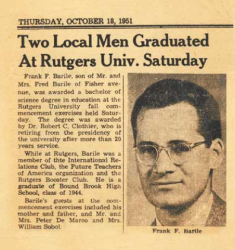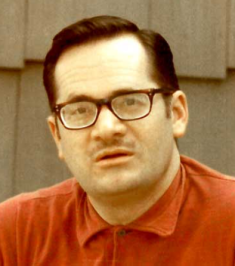
A Publication for Alumni & Friends of Rutgers Robert Wood Johnson Medical School

Almost Like Fate: Shared Mission Leads to $500,000 in Support for the Child Health Institute

The Child Health Institute of New Jersey at Rutgers Robert Wood Johnson Medical School is the cornerstone of the children’s academic health campus in New Brunswick, linking scientists who study childhood diseases with clinicians who apply scientific advances to treat our youngest patients. Its mission to research treatment and cures for children drew the attention of Peter and Judy Gagliano DeMarco in their journey to fulfill the wishes of Peter’s uncle, Francesco Barile, affectionately known as Uncle Frank, who passed away in 2014. The fact that it’s an institute at Rutgers made it even more worthy of becoming a beneficiary of the Fred and Santa Barile Trust, established by Uncle Frank, an alumnus of the Rutgers School of Education Class of 1951, in honor of his parents.
“My Uncle Frank wanted to honor his parents, who emigrated from Italy and sacrificed so much for their family, so he named the trust in commemoration of them,” says Peter, who is the executor of the trust.
One of seven children, Frank grew up just 10 minutes from the Rutgers–New Brunswick campus. After graduating from Rutgers and earning a master’s degree at the University of Kentucky, he worked at the Library of Congress in Washington, D.C., and then the National Institutes of Health in Bethesda, Md., until his retirement. He corresponded with his family through the lost art of letter writing, documenting the work he witnessed at what is now known as National Center for Children’s Rehabilitation at Children’s National Hospital in Washington, D.C., and his desire to help ill children and ease the impact chronic illness had on their families.
“Uncle Frank was a proud son of Rutgers and was grateful the university gave him the opportunity to be successful in life and in his mission to try and help children,” explains Peter. “When he passed, we contacted the Rutgers Foundation because his wishes were clear that funds from the trust not only had to go to Rutgers, but they specifically were to support medical research for the prevention and cure of childhood diseases.”
The DeMarcos learned about the Child Health Institute through Denise Gavala, associate vice president at the foundation, who oversees fundraising for Rutgers Biomedical and Health Sciences.

Their support of the institute seemed fated after meeting institute Director Arnold Rabson, MD, who they learned had a connection to the Barile family.
“When I heard that Frank Barile had been at the Library of Medicine and then the NIH, I thought my mother must have known him in her capacity as director,” says Dr. Rabson, whose parents, Ruth Kirschstein, MD, and Alan Rabson, MD, were nationally known scientists and administrators at the NIH. “When the DeMarcos mentioned that another uncle and Frank’s brother, Michael, also worked at the NIH, I knew then that our meeting was almost like fate.”
Michael F. Barile, PhD, was one of the world’s authorities on mycoplasma, tiny bacteria that live inside cells. He worked at the NIH his whole career and published several studies with Dr. Kirschstein.

“I was quite young, but I had met Michael and I knew that he had published with my mother,” says Dr. Rabson.
“In his letters, Uncle Frank often referred to programs and research initiatives at the Children’s National Hospital in Washington, D.C., and the research institute at the medical center,” says Peter. “In one letter specifically, he said, ‘there’s so much evil in this world today, I wish for the trust to bring a little sunshine and hope to as many as possible.’ It’s remarkable that we were able to find a nearly identical program at Rutgers.”
“It was truly amazing to discover this connection. It was the perfect fit,” adds Judy, a graduate of Douglass College, Class of 1975.
The DeMarcos and Dr. Rabson have since worked collaboratively to choose the initiatives that the trust supports, based on the needs of the institute.
“Within the context of our mission, research for the prevention and cure of childhood diseases, which is identical to the funding mission of the Fred and Santa Barile Trust, we review and decide together the most pressing needs,” explains Dr. Rabson. “Within the last three years, funds were used for recruitment initiatives to bring highly regarded and well-funded scientists to the institute, as well as upgrading essential instrumentation within the building.”

The latest gift allowed the institute to purchase a flow cytometer, an instrument used to analyze characteristics of cells, that is essential to conducting research. Although the scientists at the Child Health Institute are the primary beneficiaries, the flow cytometer is available to researchers throughout the medical school.
The most recent contribution also marked a milestone for the Fred and Santa Barile Trust—reaching a total of $500,000 in support to the Child Health Institute. The commitment from the DeMarcos provides a sense of confidence during an era when garnering funding for research can be unpredictable, and allows the institute to set a direction and envision new opportunities, according to Dr. Rabson.
“The Barile Trust has been an incredibly valuable resource for growing the institute and supporting its progress,” says Dr. Rabson. “The leveraging effect of these resources helps the institute to recruit top-ranked scientists whose pursuits lead to improved health for our youngest generations.”
“We couldn’t be more thrilled to support the great work at the Child Health Institute under Dr. Rabson’s leadership,” says Peter. “I know my uncle would be proud.”
